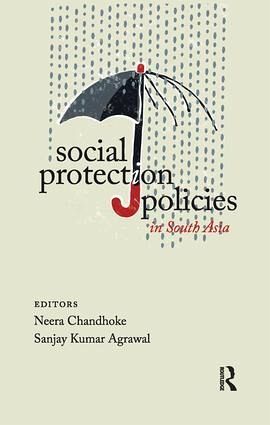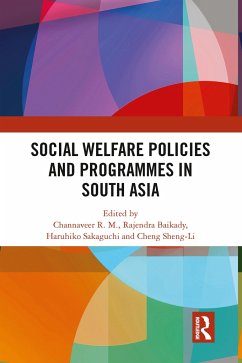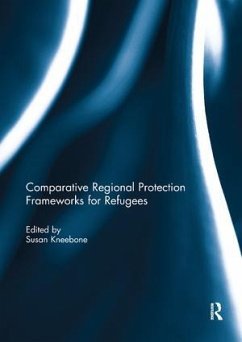
Social Protection Policies in South Asia

PAYBACK Punkte
24 °P sammeln!
This book offers a comparative analysis of social protection policies in five countries of South Asia - India, Sri Lanka, Pakistan, Nepal and Bangladesh - where economic transformation impelled by globalisation and liberalisation has, on the one hand, caused an unprecedented expansion of the informal sector, and heightened the vulnerabilities of its workers on the other. It examines the multiple vulnerabilities of workers who continue to work and live in abysmal conditions, with persistent cutbacks in social security budgets by governments, and evaluates the implementation and efficacy of curr...
This book offers a comparative analysis of social protection policies in five countries of South Asia - India, Sri Lanka, Pakistan, Nepal and Bangladesh - where economic transformation impelled by globalisation and liberalisation has, on the one hand, caused an unprecedented expansion of the informal sector, and heightened the vulnerabilities of its workers on the other. It examines the multiple vulnerabilities of workers who continue to work and live in abysmal conditions, with persistent cutbacks in social security budgets by governments, and evaluates the implementation and efficacy of current policies. The volume introduces the problem through an overview of South Asian economies by charting out the contrasting parallels between growth paths and the extent of poverty among workers in the informal sector. Further, it assesses the projected cost of basic social protection in these economies in the context of different (possible) growth scenarios. The second part of the book discusses the experiences from various countries by highlighting work force composition, ratio of workers in the informal sector to total work force, challenges and concerns, available policies and programmes, and finally, the outreach of these programmes. The concluding section argues for the need for social protection in South Asia by exposing the limitations of existing policies, and proposes a future course of action in order that social protection may serve as a tool in the transformation of social policy. This will be useful to scholars, students and researchers of development studies, economics, politics and labour law. It would also interest those in voluntary sector organisations, nongovernmental organisations, policy makers, journalists and think tanks.














